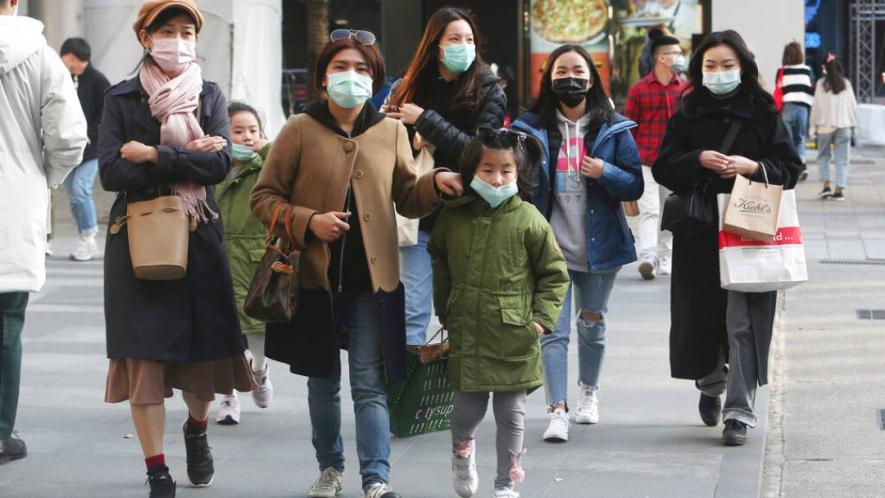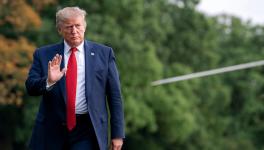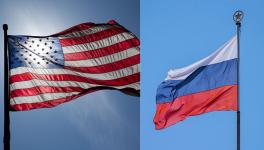Coronavirus in Times of Growing Economic Inequalities in the US

Washington: The novel coronavirus pandemic has taken a toll on the global economy, but in the United States it has thrown open the depth of inequality and the sheer number of people living on the edge in the world's largest economy.
Neither the rich nor the poor have been spared in the COVID-19 outbreak, but can it be the catalyst for reforms extending new social benefits to all Americans?
In the midst of the spreading illness, many Americans cannot follow expert advice to stay home from work when they show symptoms, because they either don't have enough paid sick leave or don't have any at all and can't afford to miss a paycheck.
"The virus is sending a clear message: all Americans are unsafe if the poorer among us do not have access to basic benefits like sick leave and health care," said Edward Alden, visiting professor at Western Washington University.
President Donald Trump has announced insurance companies would waive fees to test for the virus, but experts say more must be done.
Paid sick leave is among the labour policies that have split American political parties for years, with Democrats largely saying it should be mandatory while Republicans arguing it imposes an undue burden on employers.
As the pandemic spreads on American soil, causing events to be cancelled and hitting businesses like hotels and restaurants, the debate has resurfaced, piling pressure on the Trump administration.
"We cannot fight coronavirus effectively unless everyone in our country who needs to be tested knows they can get their test free of charge," Democratic House Speaker Nancy Pelosi said.
She said authorities will not be able to slow the epidemic because workers are faced with "the terrible choice" between staying at home to avoid spreading the disease and getting a paycheck they cannot afford to do without.
Democrats are asking for 14 days of paid sick leave and up to three months of paid emergency family medical leave, as well as expanded unemployment insurance, proposals Republicans have criticized as a wish list.
The US Centers for Disease Control (CDC) has urged companies to have flexible sick leave policies and "actively encourage sick employees to stay home."
"I will soon be taking emergency action, which is unprecedented, to provide financial relief," Trump announced on Wednesday evening.
He said the measures would be targeted at workers "who are ill, quarantined or caring for others due to coronavirus" but did not provide details.
But the question is whether these temporary measures could be made permanent.
Alden said the coincidence of the pandemic with the US presidential election campaign in which the shortcomings of the social safety net and health care system are key issues being debated "make this an especially opportune moment to tackle these long-standing and poorly addressed challenges."
"So, the optimist in me does think this could be something of a turning point," he told AFP.
Democratic presidential candidate Senator Bernie Sanders has long fought to improve the US healthcare system, extending coverage to the 87 million Americans who remain uninsured or underinsured.
"We cannot live in a nation where if you have the money you get the treatment you need to survive, but if you're working class or poor you get to the end of the line. That would be morally unacceptable," he said in an address on Thursday.
He also slammed Trump's handling of the coronavirus outbreak -- as did his remaining opponent, former vice president Joe Biden -- saying his "incompetence and recklessness have threatened the lives of many, many people in our country."
However, political polarisation means reaching a consensus of expanding these benefits to more workers could prove difficult once the pandemic has passed.
Some 73% workers in the private sector benefit from sick leave, according to March 2019 data from the Labour Department.
But this rate drops to 43% for people working part-time, particularly those working in restaurants and hotels.
Employees of high-tech companies like Google and Apple may enjoy substantial benefits, for example, but they are not immune from contamination by employees of company cafeterias.
The same goes for wealthy Americans who continue to eat out.
For the US, coronavirus represents "a common enemy", Alden said -- the first Americans have faced since perhaps World War II.
Coronavirus cases in the United States surpassed 1,300 on Thursday with nearly 40 deaths, according to data from Johns Hopkins University.
Get the latest reports & analysis with people's perspective on Protests, movements & deep analytical videos, discussions of the current affairs in your Telegram app. Subscribe to NewsClick's Telegram channel & get Real-Time updates on stories, as they get published on our website.
























